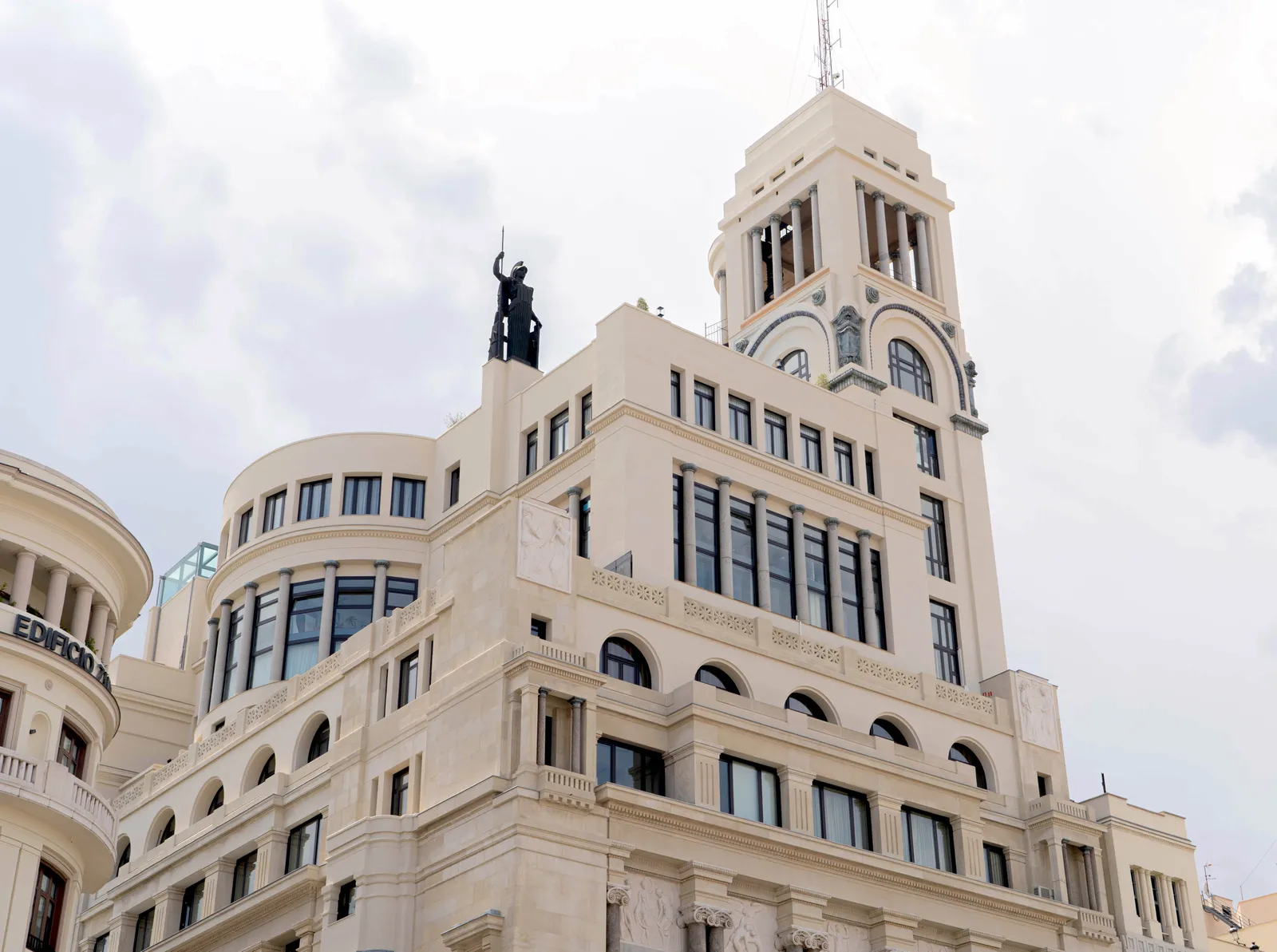About us
Our Mission
The Círculo de Bellas Artes de Madrid is a private non-profit cultural entity declared "Center for the Protection of the Fine Arts and Public Utility". Since its inception, the Círculo has developed a significant work in the field of cultural creation and promotion, with an international scope. As one of the most important private cultural centers in Europe, the Círculo is characterized by its open attitude towards the most outstanding and innovative artistic currents.
It is a multidisciplinary center that hosts and develops activities ranging from plastic arts to literature, science, philosophy, cinema and the performing arts.
Our Vision
At the Círculo we defend culture and thought as a shelter from the noice created by the vertiginous social rhythm and from the risk, increasingly pressing, of listening only to the loudest voices.
Thanks to the programming of a wide variety of artistic manifestations, we design spaces in which different perspectives of the world can coexist, and in which we can all participate through debate, reflection and active listening. We understand culture as a shelter, but it should not take shelter in itself. Therefore, we consolidate conexions with other disciplines, such as science or education.

Season 2024-2025
The Círculo launches its 2024/25 season under the motto ‘Cultura Contigo’, reaffirming our idea of a shared and participatory culture, where debate, reflection and collaboration are essential to face today's challenges. This approach extends to multiple disciplines such as science, medicine and education, in an effort to offer innovative solutions to complex problems such as climate change. In addition, the motto is our thanks to all those who make our programming possible, from institutions and partners to the public who year after year support our activities.
Exhibitions
The Círculo de Bellas Artes has four exhibition rooms with a stable programme in which both well-established figures and emerging artists are represented every year: August Sander, Donna Ferrato, Andréi Tarkovski, Francis Bacon, Robert Capa, Saul Bass, Pierre Bourdieu, Georges Perec, Le Corbussier, Picasso, Jean Arp, Silvia Plachy, Johann Wolfgang von Goethe, Pier Paolo Pasolini, Henri Michaux, Ricardo Piglia, Hans Hartung, Bruno Schulz, Pierre Klossowski, Nacho Criado, Basilio Martín Patino, Zaj, Jean Dubuffet, Mário Cesariny, Brassaï.
Humanities
The Círculo de Bellas Artes is a meeting point for thought, the sciences, literature, philosophy and the arts. The conferences, talks, discussions and poetry recitals that are organised on a daily basis have involved leading figures from the world of culture such as Vandana Shiva, Naomi Klein, Aki Kaurismäki, Georges Didi-Huberman, Gianni Vattimo, Günter Grass, Seamus Heaney, Jürgen Habermass, Rafael Alberti, George Steiner, Slavoj Žižek, Claudio Magris, Antonio Gamoneda, Hans Magnus Enzensberger, Cees Nooteboom, Manoel de Oliveira, Jean Baudrillard, Umberto Eco, Juan Gelman, John Berger, Ernesto Sábato, Álvaro Siza, Carlos Fuentes and Edward Said.
Live arts
The Círculo de Bellas Artes programmes a wide variety of music, encompassing both classical and contemporary highbrow music, and the more innovative styles of popular music. Those who have performed here include Pierre Boulez, Ana Tijoux, Jean-Michel Blais, Niño de Elche, Luis de Pablo, Lila Downs, Tiken Jah Fakoly, Eliane Elías, Jorge Pardo, Marianne Faithfull, Vinicio Capossela, Jane Birkin, María Joao and Chano Lobato. In addition, each season the Círculo de Bellas Artes presents a prestigious programme of theatre and dance.
Our history
In April 1880, a small group of artists founded the Círculo de Bellas Artes as a center for cultural promotion. Its first president was the painter Juan Martínez de Espinosa. During the first years of the 20th century, important figures of the cultural life of the time, such as Jacinto Benavente or Carlos Arniches, passed through the board of directors of the CBA, while the young Picasso attended as a student to painting classes and Ramón María del Valle-Inclán frequented its halls.
Between 1880 and 1926, the Círculo changed its headquarters ten times: Barquillo, 5; Madera, 8; Lobo, 10; Abada, 2; Libertad, 16; Barquillo, 11; Alcalá, 7; Alcalá, 14 and finally Alcalá, 42.
